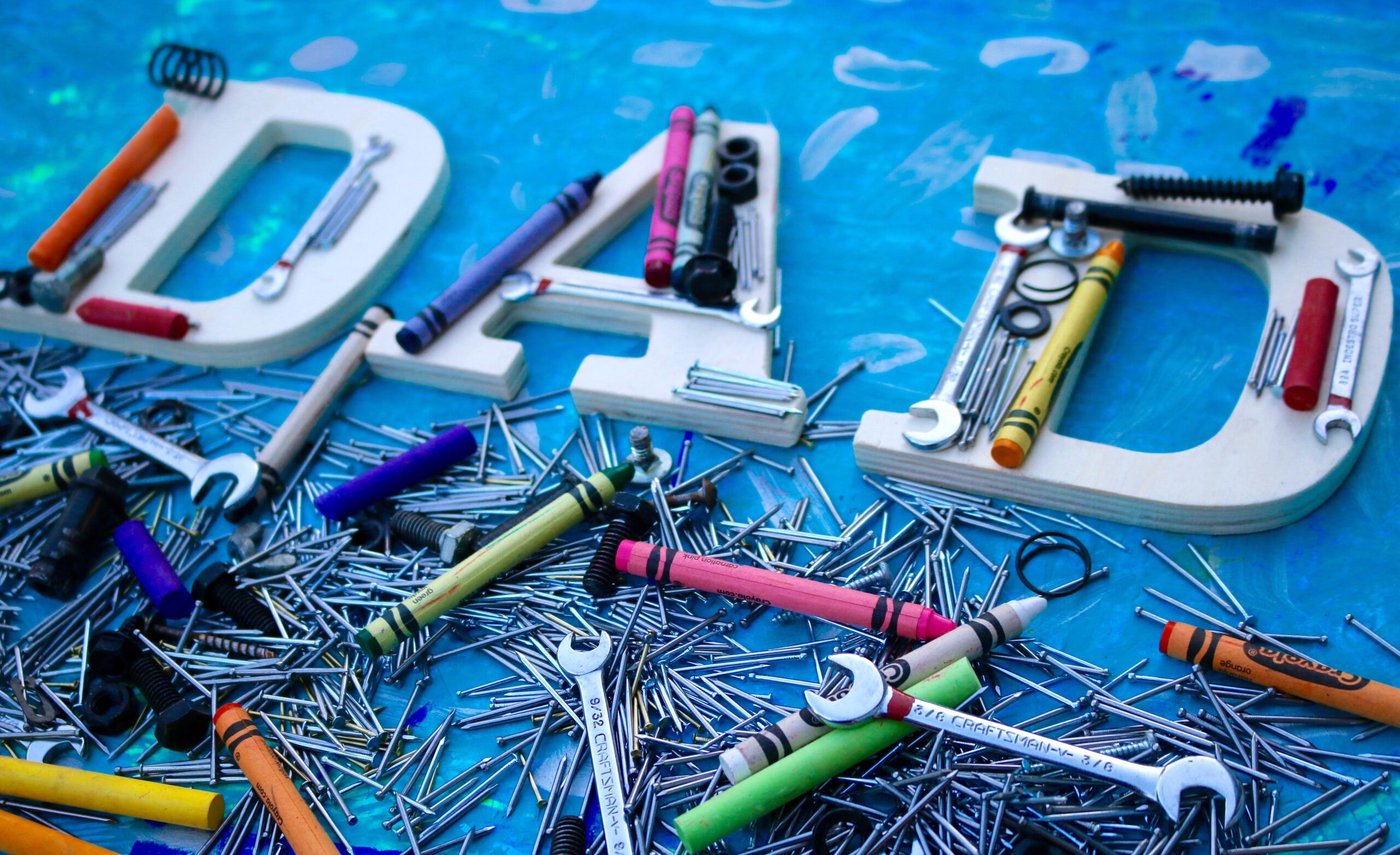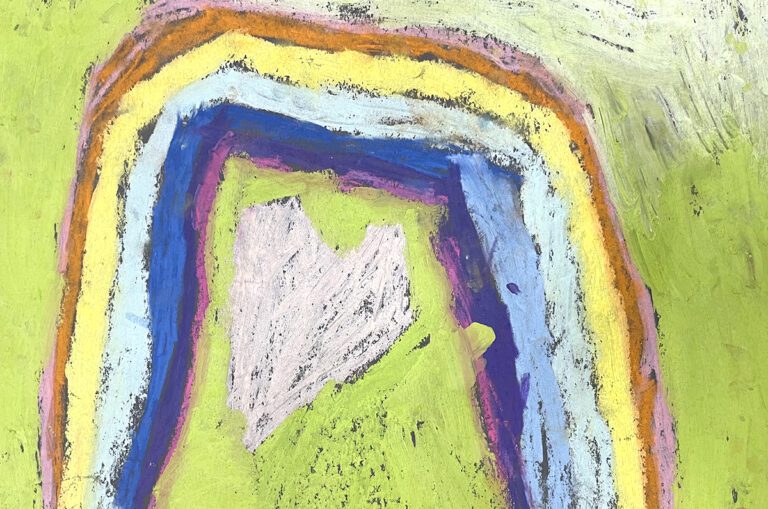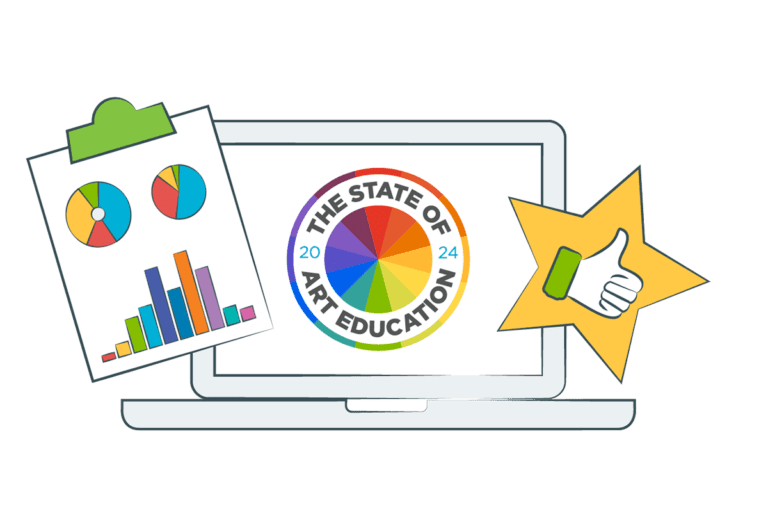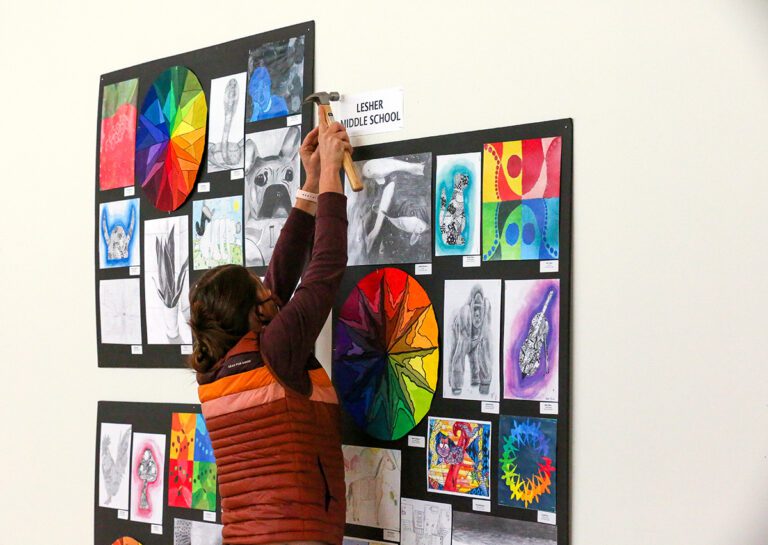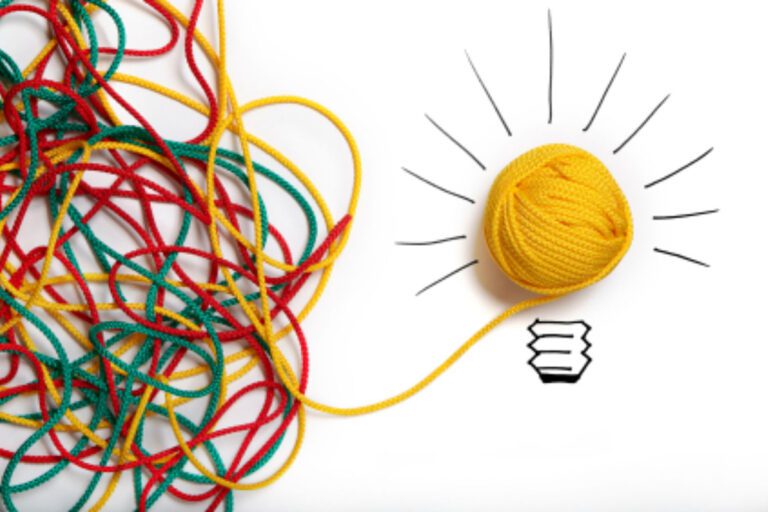The role of an art teacher should come with the description of a repairman. How often are you teaching a class and a student you don’t even have in class comes to you in need of a repair? From stains to ripped clothing to project construction, the art room becomes a non-stop fix-it shop. While I don’t always have the permanent fix, I can usually come up with a temporary solution to get a student through the rest of the day.
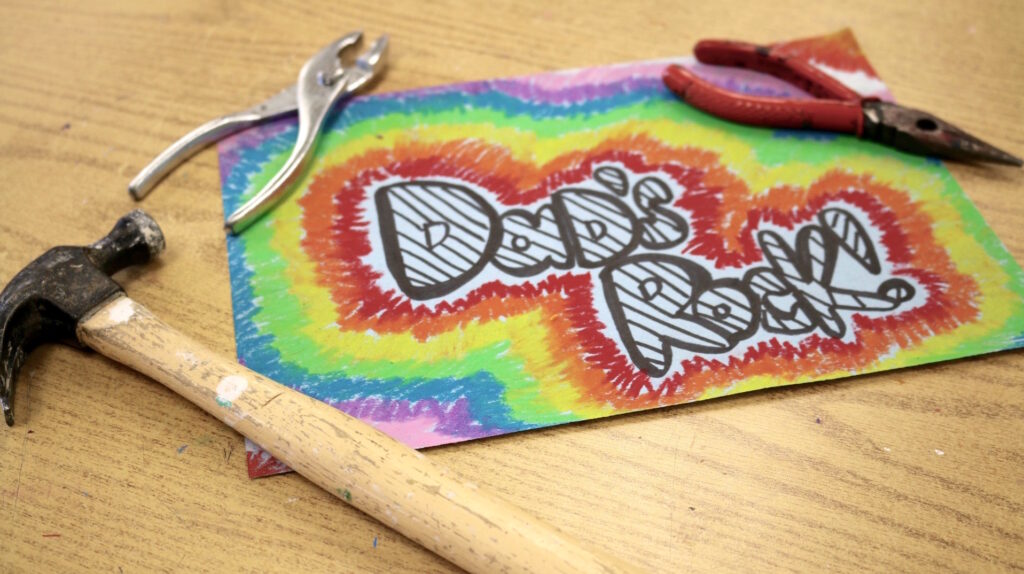
I attribute this handyman mentality to my own father. To this day, he is still able to fix anything I bring his way. Many of the skills my dad taught me have translated to my art room. From construction and grit to problem-solving and patience, these useful skills have come in handy in any number of situations.
This Father’s Day goes out to all the dads of art teachers! Thank you for embracing our wild ideas, supporting us even when you didn’t understand, and for always being there to lend a helping hand. The AOE team shared some of their fondest memories of their dads’ influence on them as an art teacher. Please chime in and tell us about your amazing dad!
15 Reasons Why the Dads of Art Teachers are the Best
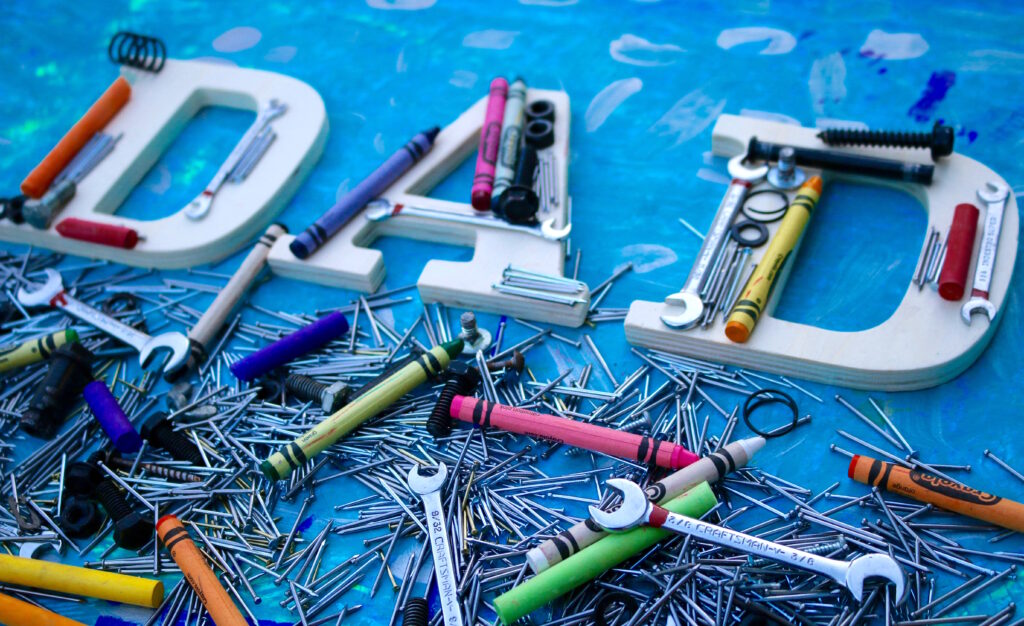
- “Thanks for using your office as my personal art gallery when we ran out of space everywhere else.”
- “For all the power tools you taught me to use that have enabled me to ‘MacGyver’ almost anything in my classroom. You were right, you can’t learn anything with your hands in your pockets.”
- “Growing up on a farm, my dad taught me the value of the ordinary. There is beauty in all things around us, and that is now a practice I share with my students each and every day.”
- “Thank you for the time you let me construct a float on your truck for the town parade. Your carpentry skills brought my vision of building a giant, old-fashioned school house to life!”
- “Thank you, Dad, for going with me to Home Depot to hunt for art supplies. I’m sorry to say I know the store even better than you do now.”
- “Thanks for keeping my ‘beautiful’ second-grade clay project on your desk for 20+ years.”
- “Thanks for coming to realize that teaching art is my passion and that it doesn’t really matter how much money I make, as long as I love what I do.”
- “Thanks for not getting THAT mad when I dug up the entire sandbox looking for clay. (Which, by the way, I found, and made a pinch pot out of.)”
- “Thank you for never batting an eye when I said I wanted to major in Studio Art and Education. Your support at that point and ever since has always meant the world to me.”
- “I thank my dad for always being supportive of my crazy ideas and helping teach me how to use power tools safely. He never said no, he just showed me how.”
- “My dad taught me to think. He was a tinkerer before it was trendy and I loved to work alongside him as a little girl. He helped me learn to brainstorm solutions to everyday issues or find ideas to solve life’s problems, and to never underestimate the power of duct tape.”
- “Thank you for embracing my love for painting at a young age. But I still don’t understand why you thought I would have that same love for painting the house, ceilings, and fence!”
- “Thank you, Dad, for always fueling my creativity. From finding treasures at garage sales to cleaning out your parents’ farm, you’d save unusual objects like oil and cream cans for me to transform.”
- “Remember that time I dyed my hair blue? I know you hated it, but thanks for letting me do it anyway!”
- “Thank you for teaching me I could do it all. From coaching my basketball team to helping me build canvases in the garage. You taught me the importance of living a well-balanced life!”
Thank you to all those who shared. Don’t forget to tell your dad how much you appreciate him this Sunday!
How did your dad support your journey to becoming an art teacher?
If you’re a dad, what special artsy things do you share with your own children? Share with us in the comments below!
Magazine articles and podcasts are opinions of professional education contributors and do not necessarily represent the position of the Art of Education University (AOEU) or its academic offerings. Contributors use terms in the way they are most often talked about in the scope of their educational experiences.
